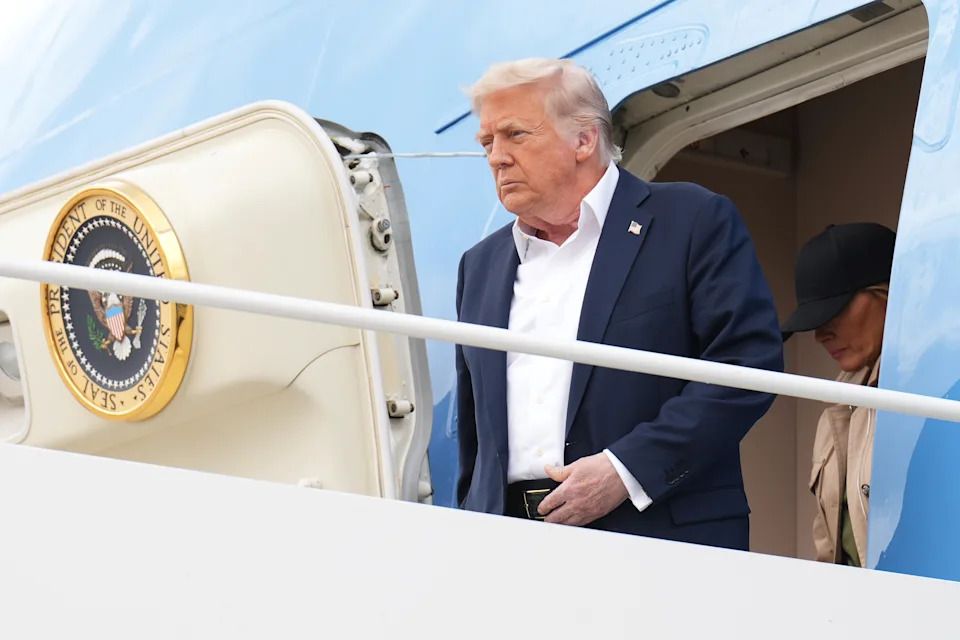
This week in Trumponomics: More tariff tantrums
Key Points
- Trump's Tariff Threats Continue: President Trump delayed the July 9 deadline for trade deals to August 1 but introduced new tariff threats, ranging from 20% to 40% on imports from countries like Japan, South Korea, and Indonesia, with higher rates for transshipped goods.**
- Unexpected Tariff Hikes: Surprising markets, Trump announced a 50% tariff on Brazilian imports linked to political conditions, a 50% tariff on copper, a potential 200% tariff on pharmaceuticals, and increased tariffs on Canadian, Mexican, and EU imports.**
- Rising Import Taxes: According to the Yale Budget Lab, recent changes will raise the effective import tax from 15% to nearly 19%, a significant jump from the 2.5% average when Trump took office.**
- Economic Impact Looming: While the real economic effects of tariffs are not yet fully evident, upcoming corporate earnings and the July 15 inflation report may reveal cost increases in various sectors, potentially pushing inflation from 2.3% to 3.5%-4% by year-end.**
- Trump's Strategy: Trump's tariff policy appears to be a tool for leverage, rewarding allies, punishing adversaries, and maintaining headlines, with little regard for market stability, suggesting ongoing unpredictability in trade policy.**
Summary
President Trump continues to wield tariffs as a powerful policy tool, delaying a July 9 trade deal deadline to August 1 while introducing new, unexpected tariff threats that unsettled markets. These include 20%-40% tariffs on imports from countries like Japan and South Korea, a 50% tariff on Brazilian goods tied to political demands, and potential 200% tariffs on pharmaceuticals. The Yale Budget Lab estimates these changes will raise the effective import tax from 15% to 19%, far above the 2.5% when Trump took office. Despite minimal real-world economic impact so far, upcoming corporate earnings and the July 15 inflation report may reveal cost increases in sectors like clothing and electronics, potentially driving inflation from 2.3% to 3.5%-4% by year-end. This prevents the Federal Reserve from cutting interest rates, fueling Trump's criticism of Fed Chair Jerome Powell, though his own trade policies are the root cause. Analysts warn markets not to underestimate Trump, as tariffs remain a preferred mechanism to address various issues, often prioritizing leverage over stability. With Trump's ability to adjust tariffs at will to reward allies or punish foes, the ongoing unpredictability suggests future trade deadlines will likely bring more surprises, maintaining a state of economic uncertainty.
yahoo
July 12, 2025
Stocks


